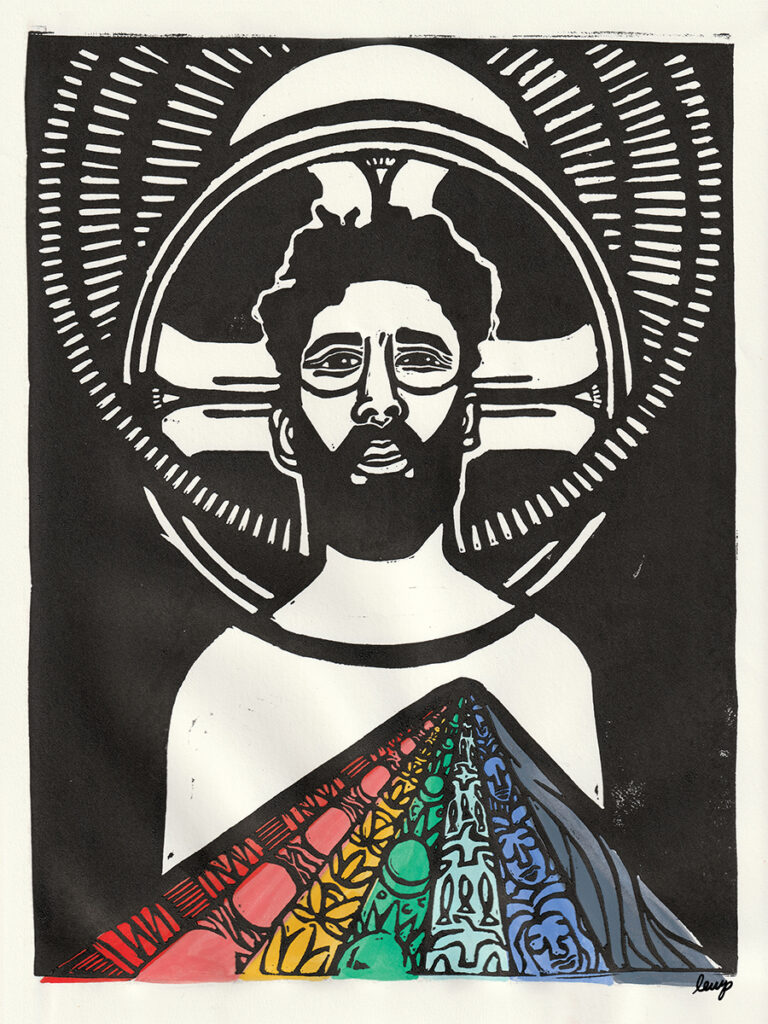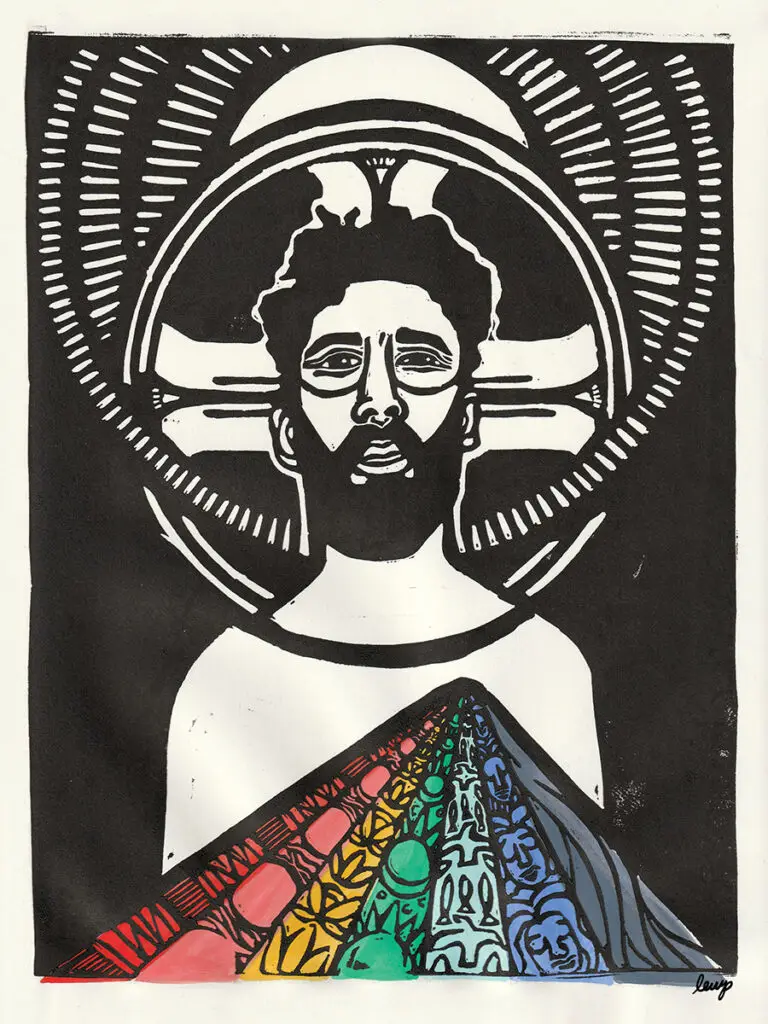Scriptures:
Isaiah 56:1-8 & Matthew 7:15-20
A few weeks ago, our high school youth went on our trip to Presbyterian Youth Triennium. In the weeks, and even the hours, leading up to the trip, there was plenty of excitement. But most of our youth were also pretty honest with me: they were nervous. They were anxious about being away from home. They were unsure about spending a week with kids they didn’t know that well even within our own group… only to have to meet even more kids from across the country and around the world.
But something started to shift as the week went on. Our youth began learning each other’s names. They started saving seats for each other, making room at meals and next to each other in worship. They were constantly calling out to each other, inviting their newfound friends to join them in whatever they were doing.
By the end of the week, that nervousness had turned into something else entirely. There was laughter, inside jokes, and the kind of comfort that comes from knowing that you belong. It’s almost funny that in less than a week, a group of individuals truly becomes a community rooted in belonging.
And that’s the thing: we all hunger for belonging. Like a child standing at the edge of a playground waiting to see if anyone invites them into the game. Or a teenager sitting in a crowded cafeteria wondering if the seat next to them will stay empty. Or even an adult in the middle of church fellowship holding a cup of coffee but not sure if anyone will come talk to them.
And sometimes I think we forget the damage that is done when a community like a church preaches belonging and acceptance and says, “All are welcome here!” while actively telling people and groups of people that they don’t belong, that they aren’t accepted, and yes, that they are “Welcome” but as long as they look, act, speak, and be just like the rest of us.
That hunger for belonging is exactly what’s at the heart of Isaiah 56. These verses open what scholars call “Third Isaiah,” a prophecy spoken to God’s people after the exile in Babylon. They had come home to a city in ruins. The temple had to be rebuilt. The walls of Jerusalem were rising again… but so were the invisible walls between the people.
Some leaders began defining belonging in narrower and narrower ways. Only those with the right ancestry. Only those who conformed to the purity laws. Only those whose lives fit cultural expectations. Everyone else? They needed to be kept at a distance.
But the word God gives is shocking:
“Do not let the foreigner joined to the Lord say, ‘The Lord will surely separate me from his people,’ and do not let the eunuch say, ‘I am just a dry tree.’”
God is speaking directly about two groups of people – the foreigners and the eunuchs – both outsiders who had been told, by law and by culture, that they do not belong. Eunuchs in particular occupied a space outside the male/female binary. In the ancient world, that made them permanent outsiders. But here, God reverses the verdict, a verdict that was actually unfortunately stated in Deuteronomy.
Isaiah’s vision tears down the walls that God’s people had built. God promises these same outsiders not just welcome but “a name better than sons and daughters… an everlasting name that shall not be cut off.”
It’s an audacious thing for God to say: because God is not just saying these outsiders now belong, but the name that God gives them is greater than the very categories they were told they could never fit into.
That name – that everlasting name – is grounded in the Imago Dei. If every human being bears the image of God, then every human being bears the worth, dignity, and love of God.
Amy Oden puts it beautifully: “God’s covenant is defined by behavior, not biology; by moral and ethical commitment, not race or ethnicity or gender identity.”
Imago Dei is not partial. It is not dependent on gender conformity, sexual orientation, ethnicity, citizenship status, or any label our culture uses to divide us. It is the bedrock truth that before we were anything else, we were God’s image-bearer.
Genesis tells us “God created humankind in God’s image… in the image of God God created them, male and female God created them. In Hebrew, the way “male and female” is written is called a merism, or two ends of a spectrum meant to express the whole. But even if that wasn’t the case, Isaiah shows us God’s love doesn’t stop at the binary: “a name better than sons and daughters”. And even Paul wrote to the Galatians, “There is no longer Jew or Greek; there is no longer slave or free; there is no longer male and female, for all of you are one in Christ Jesus.”
When we call this day Imago Dei Sunday on the day our greater community is celebrating Lehigh Valley LGBTQIA+ Pride, we are claiming that today is not a departure from God’s Word; it is a celebration of it. And today is not just a celebration; it’s a public witness to the truth that God has said from the beginning: that those who have been excluded, shamed, or erased are, in fact, beloved image-bearers of God. That God’s welcome extends to every corner of humanity.
And that is good news for everyone, even straight and cisgender people. Because if God’s welcome can stretch wide enough to include those the world has pushed away, then there will always be room for you. If God’s love is strong enough to give an everlasting name to people who have been told they have no name, then you can trust you have also been given this same name too.
As a community, we have the opportunity to share God’s expansive and inclusive love. We must if we want to bear good fruit!
In Matthew 7, Jesus says, “You will know them by their fruits.” And you don’t need to be an arborist to understand: healthy trees bear good fruit and diseased trees bear bad fruit.
And the kind of fruit we bear depends on what’s rooted deep inside us.
If our life together is rooted in God’s justice and welcome – the kind of welcome Isaiah describes – then the fruit will look like that: joy, mercy, hospitality, courage, compassion, peacemaking.
But if our life together is rooted in fear, or in the need to protect ourselves by shutting others out, or by using Scripture to wound instead of heal: then the fruit will look like that too: bitterness, division, suspicion, exclusion, hate.
Jesus’ explanation is simple: look at the outcomes. If our faith lifts people up, helps them claim the name God has given them, and affirms the image of God in others, then that’s good fruit. If our faith withholds love, diminishes someone’s dignity, or ignores the image of God in them, then it’s rotten fruit… no matter how religious it looks.
Six years ago, on the day you called me as one of your pastors, I stood here in this pulpit I preached my first sermon to you called Recovering Image-Bearers. I told you then that God’s mission is to seek and to find the ones who have been told they are not part of the flock. And that when God finds them, it’s not just the recovery of a person; it’s the recovery of God’s own image.
In that same sermon, I told you my story as a queer youth in the church. One of my youth leaders told me that God punishes people for loving someone of the same gender. I was already wrestling with my own identity, already carrying the fear of being different, and now I was questioning whether this part of me was loveable. And when I heard those words spoken as if they were God’s truth, I believed them. I believed the lie that God was against people like me. And as a 12-year-old, I began to hate this part of myself.
It took years for God to undo that lie. Years to believe again that my identity, my whole self, is made in the image of God. But God did it. Through family and friends who loved me unconditionally, through mentors who spoke blessings over me, through strangers who offered hospitality, and eventually through communities of faith that said with their words and their actions: that people like me belong. They gave me back the name I had forgotten – my everlasting name: Beloved.
Over the past five years here, I have seen us become that kind of community for others. Together we have worked to make our life together match the wideness of God’s welcome.
We’ve welcomed children and youth into worship leadership, mission work, and service. We’ve baptized babies and adults alike, calling each by name and marking them as beloved. We’ve opened our doors to immigrants and refugees, walking alongside them in resettlement and friendship. We’ve partnered with organizations to shelter families experiencing homelessness. We’ve prayed publicly for the marginalized, we’ve named injustice from this pulpit, and we’ve displayed banners that declare God’s love for all. We’ve sent youth and adults into the community and across the country to serve and learn. We’ve stood with neighbors after acts of violence and hate.
And maybe most importantly: we’ve made room for people to arrive as they are. We’ve seen those who came here uncertain if they belonged…. find a home in this community. We’ve watched people who were wary of the church discover that here, they are seen, valued, and loved.
I have seen you call one another by God’s everlasting name: Beloved.
This is what it looks like to recover image-bearers. This is what it looks like to bear good fruit. And so today on Imago Dei Sunday we proclaim it again:
You are Beloved.
The foreigner is Beloved.
The immigrant is Beloved.
The refugee is Beloved.
The eunuch is Beloved.
The queer child is Beloved.
The trans teenager is Beloved.
The nonbinary neighbor is Beloved.
The person who has been told they don’t belong is Beloved.
The one who is still searching for a home is Beloved.
And the one sitting here today wondering if they are even loved at all is Beloved.
Every single one of us bears the image of God. And over every single one of us, God speaks that everlasting name: Beloved.
Friends, the world is still full of people hungry for belonging. There are people in our community wondering if there is a place for them in God’s house. There are people who question every day if they are loved. But you and I have the chance – or really the calling – to look them in the eye and remind them of their everlasting name: Beloved.
In the name of the Creator, Redeemer, and Sustainer; in the one who names us Beloved. Amen.


